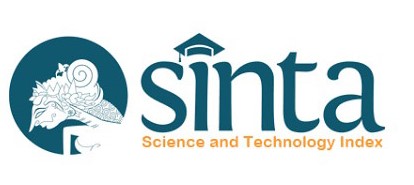Factors Affecting Outcome of Patients with Upper Gastrointestinal Haemorrhage Presenting to Emergency Department: A Prospective observational cohort study
Abstract
Background: Upper gastrointestinal bleeding (UGIB) is one of the most common presentations in an emergency department (ED). UGI endoscopy is the definitive diagnostic and therapeutic modality for UGIB. Aim of the study were look into the outcomes of UGIB and outcomes based on the timing of endoscopy (early endoscopy mean before 24 hours and late endoscopy mean after 24 hours).
Methods: 180 patients presented in ED with UGIB and undergo Upper gastrointestinal (UGI) endoscopy. Socio-demographic profiles, with presenting signs and symptoms, co-morbidities, vitals, lab parameters, endoscopic diagnosis with the treatment of the patient were collected. They were followed up to day 7 of presentation to determine all-cause mortality, re-bleed, development of hemorrhagic shock, admission rate and length of ED stay, early endoscopy and late endoscopy.
Result: The mortality difference in the early endoscopy (3.2%) and late endoscopy (16.1%) group was significant with a p-value of 0. 012. Late endoscopy (18.6%) was associated with a higher risk of development of hemorrhagic shock compared to the early group (4.8%) with a p-value of 0.011. The factors that had a significant association with mortality on univariate analysis were, late endoscopy, systolic blood pressure on presentation less than 90, variceal bleeding, blood transfusion requirement, AIMS 65 score greater than 0. Multivariate analysis showed that late endoscopy (OR 5.35(1.12-25.3)) and AIMS 65 score (OR 11.76(1.48-93.3)) were independent risk factors for mortality.
Conclusion: We concluded that early endoscopy was associated with decreased mortality, decreased length of ED stay and decreased risk of development of hemorrhagic shock.
Keywords
Full Text:
PDFReferences
Rockall TA, Logan RF, Devlin HB, Northfield TC. Selection of patients for early discharge or outpatient care after acute upper gastrointestinal hemorrhage. National Audit of Acute Upper Gastrointestinal Hemorrhage. Lancet Lond Engl. 1996 ;347(9009):1138–1140.
Lau JYW, Barkun A, Fan D, Kuipers EJ, Yang Y, Chan FKL. Challenges in the management of acute peptic ulcer bleeding. Lancet Lond Engl. 2013;381(9882):2033–2043.
Wilkins T, Khan N, Nabh A, Schade RR. Diagnosis and management of upper gastrointestinal bleeding. Am Fam Physician. 2012 Mar 1;85(5):469-476.
Parvez MN, Goenka MK, Tiwari IK, Goenka U. Spectrum of upper gastrointestinal bleed: An experience from Eastern India. J Dig Endosc. 2016;07(02):055–061.
Gupta T, Goyal S. Paradigm shift in Etiology of Upper Gastrointestinal Bleed in Emergency Department. J Ren Hepatic Disord. 2021;5(1):14–18.
Cook DJ, Guyatt GH, Salena BJ, Laine LA. Endoscopic therapy for acute nonvariceal upper gastrointestinal hemorrhage: a meta-analysis. Gastroenterology. 1992;102(1):139–148.
Laine L, Jensen DM. Management of patients with ulcer bleeding. Am J Gastroenterol. 2012;107(3):345-361. doi:10.1038/ajg.2011.480
Guo CLT, Wong SH, Lau LHS, et al. Timing of endoscopy for acute upper gastrointestinal bleeding: a territory-wide cohort study. Gut. 2022;71(8):1544-1550. doi:10.1136/gutjnl-2020-323054
Siau K, Hodson J, Ingram R, et al. Time to endoscopy for acute upper gastrointestinal bleeding: Results from a prospective multicentre trainee-led audit. United Eur Gastroenterol J. 2019;7(2):199–209.
Shafa A, Hirmanpour A, Nazemroaya B, Jafari F, Pourreza A. Comparison of the Prophylactic Effect of Ondansetron, Dexamethasone, and the Combination of These Drugs on Decreasing Nausea and Vomiting in Children Aged 1 to 12 Years Old Undergoing Upper Gastrointestinal Endoscopy. Arch Anesth & Crit Care. 2018;5(1):10-14.
Jeong N, Kim KS, Jung YS, Kim T, Shin SM. Delayed endoscopy is associated with increased mortality in upper gastrointestinal hemorrhage. Am J Emerg Med. 2019;37(2):277–80.
Sourabh S, Sharma N, Sharma R, et al. Clinical Profile, Severity and Outcome of Acute Upper Gastrointestinal Bleeding in Elderly Patients Compared to Non- Elderly Patients: A Prospective Observational Study. J Assoc Physicians India. 2019;67(9):30–32.
Saleem SA, Kudaravalli P, Riaz S, et al. Outcomes of Upper Gastrointestinal Bleeding Based on Time to Endoscopy: A Retrospective Study. Cureus. 2020;12(3): e7325.
Rajan SS, Sawe HR, Iyullu AJ, et al. Profile and outcome of patients with upper gastrointestinal bleeding presenting to urban emergency departments of tertiary hospitals in Tanzania. BMC Gastroenterol. 2019;19(1):212.
Roberts SE, Button LA, Williams JG. Prognosis following upper gastrointestinal bleeding. PloS One. 2012;7(12): e49507.
Shih PC, Liu SJ, Li ST, Chiu AC, Wang PC, Liu LYM. Weekend effect in upper gastrointestinal bleeding: a systematic review and meta-analysis. PeerJ. 2018;6:e4248.
Cho SH, Lee YS, Kim YJ, et al. Outcomes and Role of Urgent Endoscopy in High-Risk Patients with Acute Nonvariceal Gastrointestinal Bleeding. Clin Gastroenterol Hepatol Off Clin Pract J Am Gastroenterol Assoc. 2018;16(3):370–7.
DOI: http://dx.doi.org/10.21776/ub.jap.2023.004.03.04
Refbacks
- There are currently no refbacks.

This work is licensed under a Creative Commons Attribution 4.0 International License.









.png)

